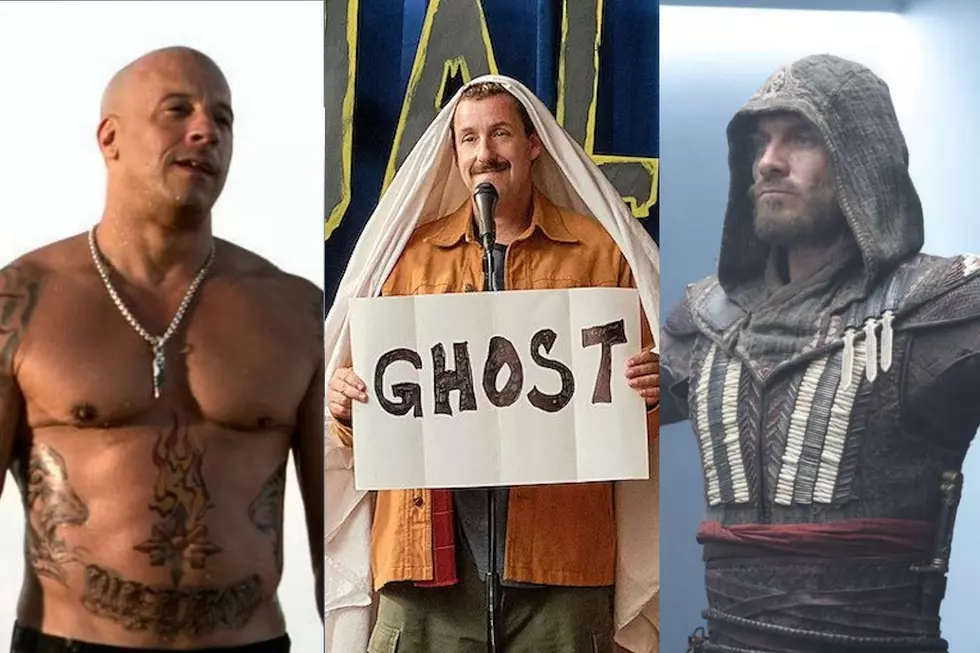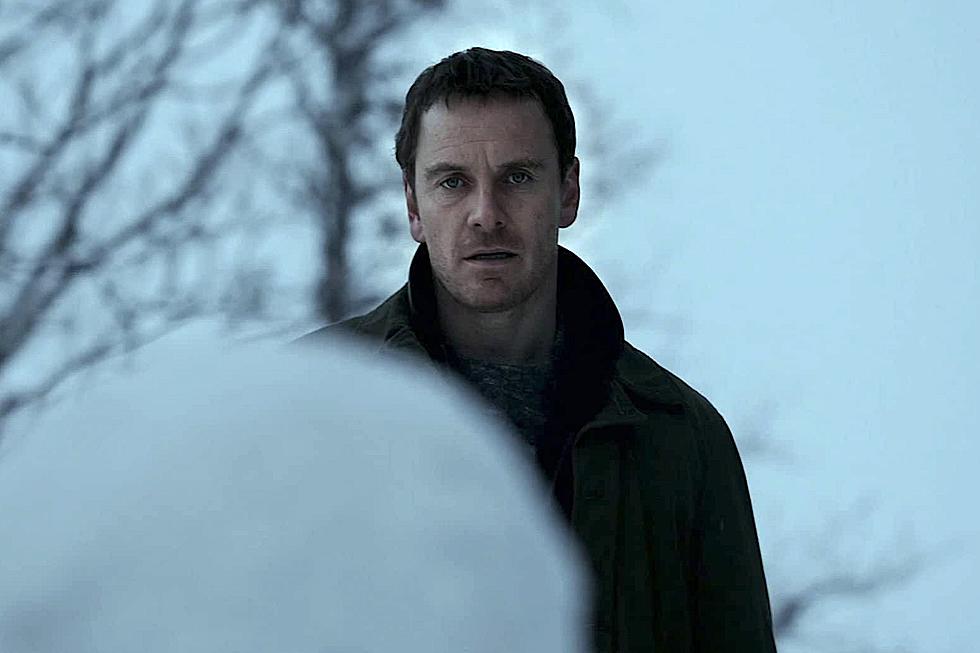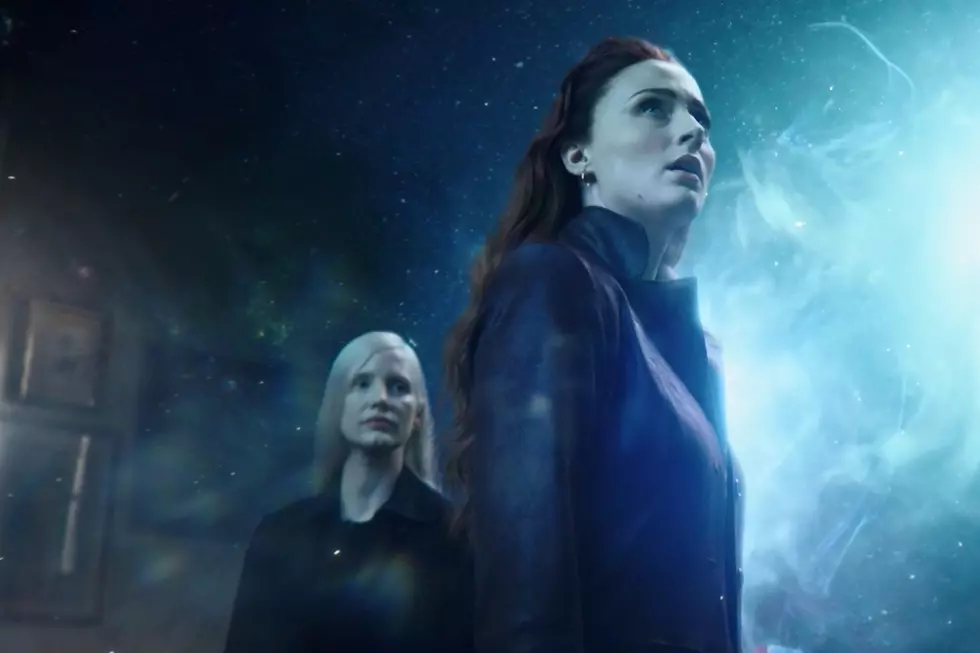
Marion Cotillard on the Pressure of Playing Lady Macbeth, ‘Assassin’s Creed’ and Working with Xavier Dolan
What do you after you’ve already proven yourself one of the greatest actors of your time? Shakespeare, apparently.
After winning an Oscar for La Vie en Rose, after fearless work in the Dardennes brothers’ Two Days, One Night, after catching the attention of American audiences in Christopher Nolan’s Inception and The Dark Knight Rises (and even a great cameo in Anchorman 2: The Legend Continues), Marion Cotillard now turns to classic tragedy. In Australian writer-director Justin Kurzel’s reimagining of Shakespeare’s Macbeth, the story of the insatiable thirst for power gets a stunning and violent reboot. Battle sequences are unflinching and bloody, gorgeously photographed with hues of orange and swords clashing in slow motion. Michael Fassbender’s Macbeth, streaked with Braveheart-like warpaint, murders his way to the King of Scotland’s throne with the help of his wife, Cotillard’s Lady Macbeth. But their rise to power swiftly gives way to a descent into madness.
Taking on such an intoxicating and dark role was a challenge for Cotillard, particularly the part that involved the French actress speaking in Shakespearian English. I caught up with Cotillard over the phone to talk about her approach to the famous role, reuniting with both Fassbender and Kurzel on the upcoming Assassin’s Creed and working with French-Canadian darling Xavier Dolan.
Macbeth has been reimagined so many times on the stage and the screen, but Justin Kurzel’s version is a much bleaker, more brutal retelling. What was it like to approach the story from that angle?
I think he came so close to the characters that it’s darker, but at the same time you can feel their humanity. That part of his vision that I thought was very interesting, he right away talked to me about the love [Macbeth and Lady Macbeth] have for each other and the humanity they have inside that is covered by their fears and pain that they transformed into violence. But that deep inside, this humanity would come back and come out and eat them. When he talked about his vision, I was super excited to be part of the project.
Did you feel a certain responsibility in taking on a role as iconic as Lady Macbeth?
Well the responsibility, I don’t know, but the pressure. I really wanted to give everything I could to deliver something that would honor Shakespeare in a way.
Did you study or draw from previous performances of Lady Macbeth or did you try to make her more of your own?
Well I didn’t study the previous interpretations because first of all they’re so good that the pressure was already very strong. I didn’t need more pressure. I had the interpretation of Judi Dench in mind and that was a lot of pressure because the perfection in [her performance]. So I really needed to find the singularity of my interpretation. We worked for a month and a half. We had a rehearsal process like a theatrical rehearsal process, and we really created this world and those characters all together. I knew that in the hands of Justin I would find my own Lady Macbeth.
You’ve described the shooting process as dark and gloomy and you’ve also said you had panic attacks on set.
It was not on set, actually. It was while I was preparing the movie. Because that was hard in terms of technique to find the right accent, and also to live with such a dark character. The preparation time was not an easy time for me, but I didn’t expect to have an easy time either. I was kind of prepared to live something very deep and very strong and very dark.
What was it like to get into that evil and dark mindset? Were you able to shake it off at the end of the day or were you in it for the whole production?
The thing is she’s not only evil. If she was just evil and if she was just like a cold-blood killer she wouldn’t realize what she’s done and she wouldn’t fall into madness to the point that she would kill herself. The humanity of it was something that was very important to me. But yes, at the end of the day when I would go back home I would have to find my own breathing to get back to myself and to offer only myself to my kid and not this very dark person I was spending my days with.
Was it a challenge to speak in Shakespearean English?
Yes. First of all it was challenging to understand. It’s challenging to the point where you find the rhythm of Shakespeare, which is a very organic rhythm and when you get it there is a pure joy to say those words. That’s why he was a genius because all the feelings that he tells with words are in the rhythm of the words he uses, the sentences he wrote. So when I had worked enough I could really find this joy of Shakespeare’s words.
Kurzel’s film is also one of so much isolation. Either you or Fassbender are alone in the frame for most scenes, or the two of you are together with others silent in the background. What was it like to be such a singular focal point in film of such intensity?
That’s what Justin really wanted, to create this intimacy. We were lucky enough to have this month and a half rehearsal and that was really intense. That was really inspiring and interesting to explore all together all the interpretations that you can give to only one sentence. We worked with this amazing man, Neil Swain, who was our dialect coach, but he was also the Shakespeare expert on set. He gave us the keys to understand all the fertilities of the text and all the different meanings of just one sentence. It was very rich and at the same time it created this intimacy that Justin was looking for.
When we were on set we had experienced this intimacy for a month and a half and it allowed us on set to be ready for, you know when you’re well prepared, the accident or the unexpected can create something very magical.
Was there anything unexpected and not originally in the script that ended up in the film?
Well Michael Fassbender is a very creative person and his commitment to this movie was so beautiful and so strong. He had, everyday, ideas that he would deliver and I would react to these ideas and I never knew what he would create the next day. So every morning I would arrive and I would expect something very surprising. That was really, really amazing to work this way because he created things on the day we were shooting, but it was not just to create something different or bring a singular aspect to his character. All his ideas for Macbeth were creating something singular for the movie. And he’s a very intelligent actor and a very generous one, too.
With the language and the slo-mo battle sequences, this is a film that really commands attention and patience. How do you think modern audiences will respond to it?
Yeah, but at the same time it talks about how human beings deal with the society they live in, and that’s what we do every day. It talks about those people who cannot face their fears and pain and try to escape their condition by being violent or escape those feelings with power. We see this every day in this world, so it’s a very actual subject.
Do you think there’s anything audiences can take away from that in the context of the violence in our world today?
Oh, totally. I mean, what I just said, you cannot – the only way you can deal and go beyond fears and pain is to face it. If you try to escape it there is nothing good that can come out of escaping. And it leads to madness.
You’re also working with Kurzel and Fassbender on Assassin’s Creed. What has it been like to go from Macbeth to that project?
I’m so happy that we are reunited for a very different project, but they put the same passion and the same creativity to a very different movie. Again, Justin is such an amazing director and the love he has for human beings and the way he wants to explore the human soul is the same for an independent movie or a blockbuster movie. In an adaptation of such a big video game, he has the same way of working in finding [and] exploring people’s souls and hearts.
Can you say anything about your character in Assassin’s Creed?
Well no. [Laughs.]
I was excited to learn you’re also starring in Xavier Dolan’s next film, It’s Only the End of the World.
Yeah. That was an amazing experience. Xavier is definitely one of the greatest directors and directors for actors, as Justin is, as the Dardenne brothers are. Lately I had the chance to be directed by people, by directors and artists, who really work with actors and understand them. That’s exactly the way I want to work. I feel very lucky.
Macbeth is now playing.
More From ScreenCrush









